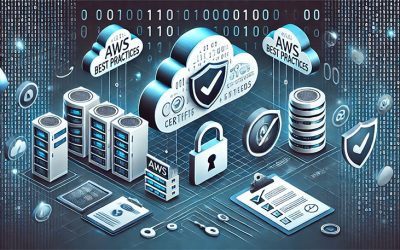AWS Security Specialty
Creating an AWS Security Specialty course involves providing participants with advanced knowledge and skills in securing AWS environments and preparing them for the AWS Certified Security – Specialty exam. Here’s an outline for such a course:
ENQUIRY NOW!

Course Overview:
The AWS Security Specialty course offers participants an in-depth understanding of AWS security best practices, compliance requirements, and advanced security techniques. Participants will learn how to design, implement, and manage secure AWS architectures to protect against security threats and vulnerabilities.
Course Objectives:
- Understand advanced security concepts and principles in AWS
- Gain proficiency in designing and implementing secure AWS architectures
- Learn about AWS security services, tools, and features
- Prepare for the AWS Certified Security – Specialty exam
Course Outline:
- Introduction to AWS Security
- Overview of cloud security fundamentals
- Understanding the shared responsibility model in AWS
- Overview of AWS security services and features
Identity and Access Management (IAM)
- Advanced IAM concepts: roles, policies, permissions boundaries
- Implementing fine-grained access control with IAM
- Best practices for securing IAM resources
Security Compliance and Governance
- Overview of AWS compliance programs: GDPR, HIPAA, SOC, etc.
- Configuring and monitoring compliance controls in AWS
- Implementing governance best practices with AWS Config and AWS Organizations
Data Protection and Encryption
- Implementing encryption at rest and in transit with AWS KMS, S3, and SSL/TLS
- Managing encryption keys and key rotation
- Best practices for protecting data in AWS
Network Security
- Securing VPCs and subnets with security groups and network ACLs
- Implementing network security best practices: bastion hosts, VPNs, etc.
- Monitoring and detecting network security threats with VPC Flow Logs and AWS GuardDuty
Security Monitoring and Incident Response
- Setting up centralized logging and monitoring with AWS CloudTrail and CloudWatch
- Configuring alarms and notifications for security events
- Implementing incident response procedures and best practices
Application Security
- Securing application deployments with AWS WAF and AWS Shield
- Implementing security best practices for serverless applications (AWS Lambda, API Gateway)
- Protecting against common application security threats: XSS, SQL injection, etc.
Security Automation and Orchestration
- Automating security tasks with AWS Lambda and AWS Systems Manager
- Using AWS Config Rules for automated compliance checks
- Orchestrating security workflows with AWS Step Functions
Threat Detection and Prevention
- Implementing threat detection strategies with AWS services
- Configuring AWS Security Hub and Amazon Inspector for vulnerability assessment
- Implementing intrusion detection and prevention systems (IDPS) with AWS services
Security Testing and Assessment
- Conducting security assessments and penetration testing in AWS
- Using AWS tools and services for vulnerability scanning and assessment
- Implementing best practices for security testing and assessment
Secure DevOps Practices
- Integrating security into DevOps processes and workflows
- Implementing infrastructure as code security with AWS CloudFormation
- Using AWS CodePipeline and AWS CodeBuild for secure CI/CD pipelines
Security Architecture and Design
- Designing secure AWS architectures based on industry best practices
- Applying security design patterns and principles to AWS environments
- Reviewing and assessing security architectures for compliance and risk management
Exam Preparation and Practice
- Tips and strategies for preparing for the AWS Certified Security – Specialty exam
- Practice exams and quizzes to assess readiness
- Guidance on exam registration and scheduling
- Case Studies and Real-World Scenarios
- Real-world case studies illustrating security challenges and solutions in AWS environments
- Analyzing security incidents and breaches in AWS
- Applying AWS security best practices to solve practical security problems
Prerequisites:
- Prior experience with AWS services and security concepts
- Familiarity with networking, encryption, and compliance requirements
- Recommended: Completion of AWS Certified Solutions Architect – Associate or AWS Certified Developer – Associate certification
Target Audience:
- Security professionals, solutions architects, and system administrators interested in AWS security
- IT professionals responsible for designing, implementing, and managing secure AWS architectures
- Candidates preparing for the AWS Certified Security – Specialty exam
Duration:
The course can be conducted over a period of 10-12 weeks, with classes scheduled for a few hours each week.
Conclusion:
The AWS Security Specialty course equips participants with advanced knowledge and skills in securing AWS environments. By covering advanced security concepts, best practices, and exam preparation strategies, participants will be well-prepared to design, implement, and manage secure AWS architectures and pass the AWS Certified Security – Specialty exam.
Recent Blogs
Top AWS Security Certification Best Practices for Small Businesses
For small businesses leveraging AWS Security Certifications and best practices are essential to safeguard data, ensure compliance, and protect against cyber threats. Here are the top AWS security certification best practices: AWS Security Certifications AWS Certified...
AWS Security Best Practices: What You Need to Know Before Getting Certified
Preparing for an AWS Security certification, such as the AWS Certified Security – Specialty, requires a solid understanding of AWS security best practices. AWS provides a comprehensive set of tools and guidelines to help secure your infrastructure and applications,...






